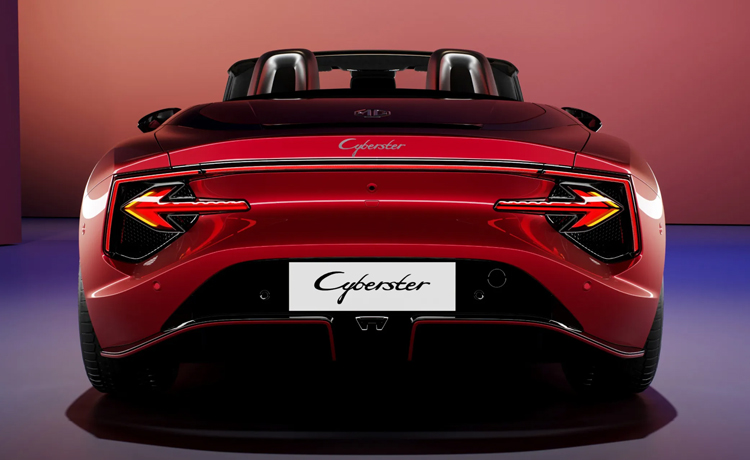
As the world shifts toward greener technologies, India is poised to become a major player in the electric vehicle (EV) revolution. With a growing demand for sustainable transportation and government policies supporting EV adoption, automakers are gearing up to launch cutting-edge electric cars in the Indian market. Here’s a closer look at the most anticipated EVs expected to hit Indian roads in 2025.
Maruti Suzuki e Vitara

Maruti Suzuki, India’s largest automaker, is set to make a bold entry into the EV segment with the e Vitara, an all-electric version of its popular Vitara. Positioned as a compact SUV, the e Vitara will cater to the growing demand for affordable and practical EVs. 61 kWh and 49 kWh variants are expected to be unveiled along with connected car tech. The e Vitara will go head-to-head with the Tata Nexon EV and the upcoming Hyundai Creta EV. Maruti’s venture into EVs signals a seismic shift in the Indian auto market, leveraging its massive dealership network to accelerate EV adoption.
Hyundai Creta EV

Hyundai, already a key player in India’s EV market with the Kona Electric and Ioniq 5, will expand its portfolio with the Creta EV. Based on its immensely successful Creta, this electric version aims to bring Hyundai’s EV expertise to a broader audience. You can expect this machine to sport premium interiors and advanced safety features like ADAS. With its sleek design and robust range, the Creta EV will compete directly with the Maruti Suzuki e Vitara and MG ZS EV. Hyundai’s focus on reliability and innovation will ensure the Creta EV will be a strong contender in the mid-size electric SUV segment.
Also Read: Dream Cars I’d Like To Own In My Lifetime: Petrolhead’s Bucket List
Tata Harrier EV

Tata Motors, India’s EV pioneer, is ready to electrify its flagship SUV with the Tata Harrier EV. As part of Tata’s ambitious plans to dominate the EV market, the Harrier EV will combine rugged SUV capabilities with swift EV performance. The car is supposed to be AWD and could feature dual electric motors and a 70 kWh battery offering a range of 500+ km. Tata’s Ziptron technology will be at the helm of this EV, which is expected to compete against the Hyundai Ioniq 5. If you’re in the market for a family-friendly EV, you might want to wait until the Harrier EV hits the market.
Tata Sierra EV

Bringing back an iconic nameplate, Tata Motors is set to launch the Tata Sierra EV. This electric SUV will blend nostalgia with futuristic design, which has already made it one of the most awaited models in India. Expect it to roll in with a 60 kWh battery and a range of around 500 kms. Like the Harrier, it should also get a panoramic sunroof, moreover. The Sierra EV’s blend of heritage and innovation will make it a symbolic step forward for Tata’s EV journey and further strengthen its EV lineup.
Tata Safari EV

Tata is also bringing electrification to its iconic Safari SUV with the Tata Safari EV. Known for its rugged design and family-friendly features, the Safari EV promises to combine practicality with sustainability. It will compete in India against large electric SUVs like the MG Hector EV and Toyota Urban Cruiser EV. Not many details about the specs of this car are known at the moment.
Toyota Urban Cruiser EV

Toyota is entering the Indian EV market with the Urban Cruiser EV, an electric version of its popular compact SUV. Known for its reliability and efficiency, Toyota aims to make EVs more accessible to Indian consumers. 49 kWh and 61 kWh options could make it to the market, giving buyers of this car ample range for extended use. Maruti Suzuki’s e Vitara is set to face stiff competition from the Urban Cruiser EV, and the same can also be said for the Tata Nexon EV.
MG Cyberster

MG Motors has been acing the Indian market when it comes to its EVs. And it’s set to take a completely different route this year by introducing an all-electric roadster in the form of the MG Cyberster. By adopting this name, MG is keeping no secret that it wishes to cash in on the craze of Tesla’s Cybertruck and Roadster cars. The Cyberster will be aimed at EV enthusiasts and luxury buyers and will be among the very few high-performance EVs in India. It could ship with a 77 kWh battery pack and a dual-motor setup that will deliver over 500 bhp and futuristic design elements like scissor doors and an interactive cockpit.
The anticipated launches of these EVs are set to revolutionise the Indian automotive landscape. With major automakers like Maruti Suzuki, Tata Motors, Hyundai, Toyota, and MG stepping up their game, 2025 will offer Indian consumers a plethora of options across various segments. As these electric vehicles hit the roads in 2025, they’ll not only reduce emissions but also redefine how Indians view mobility.

